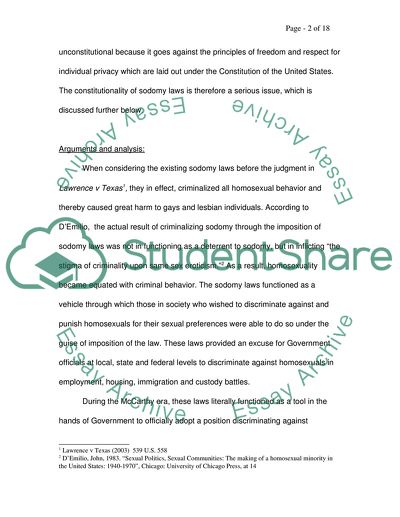Cite this document
(Criminalization of Sodomy Laws is Unconstitutional Essay, n.d.)
Criminalization of Sodomy Laws is Unconstitutional Essay. Retrieved from https://studentshare.org/law/1713928-argument-for-the-proposition-that-criminalization-of-sodomy-laws-are-unconstituional
Criminalization of Sodomy Laws is Unconstitutional Essay. Retrieved from https://studentshare.org/law/1713928-argument-for-the-proposition-that-criminalization-of-sodomy-laws-are-unconstituional
(Criminalization of Sodomy Laws Is Unconstitutional Essay)
Criminalization of Sodomy Laws Is Unconstitutional Essay. https://studentshare.org/law/1713928-argument-for-the-proposition-that-criminalization-of-sodomy-laws-are-unconstituional.
Criminalization of Sodomy Laws Is Unconstitutional Essay. https://studentshare.org/law/1713928-argument-for-the-proposition-that-criminalization-of-sodomy-laws-are-unconstituional.
“Criminalization of Sodomy Laws Is Unconstitutional Essay”, n.d. https://studentshare.org/law/1713928-argument-for-the-proposition-that-criminalization-of-sodomy-laws-are-unconstituional.


